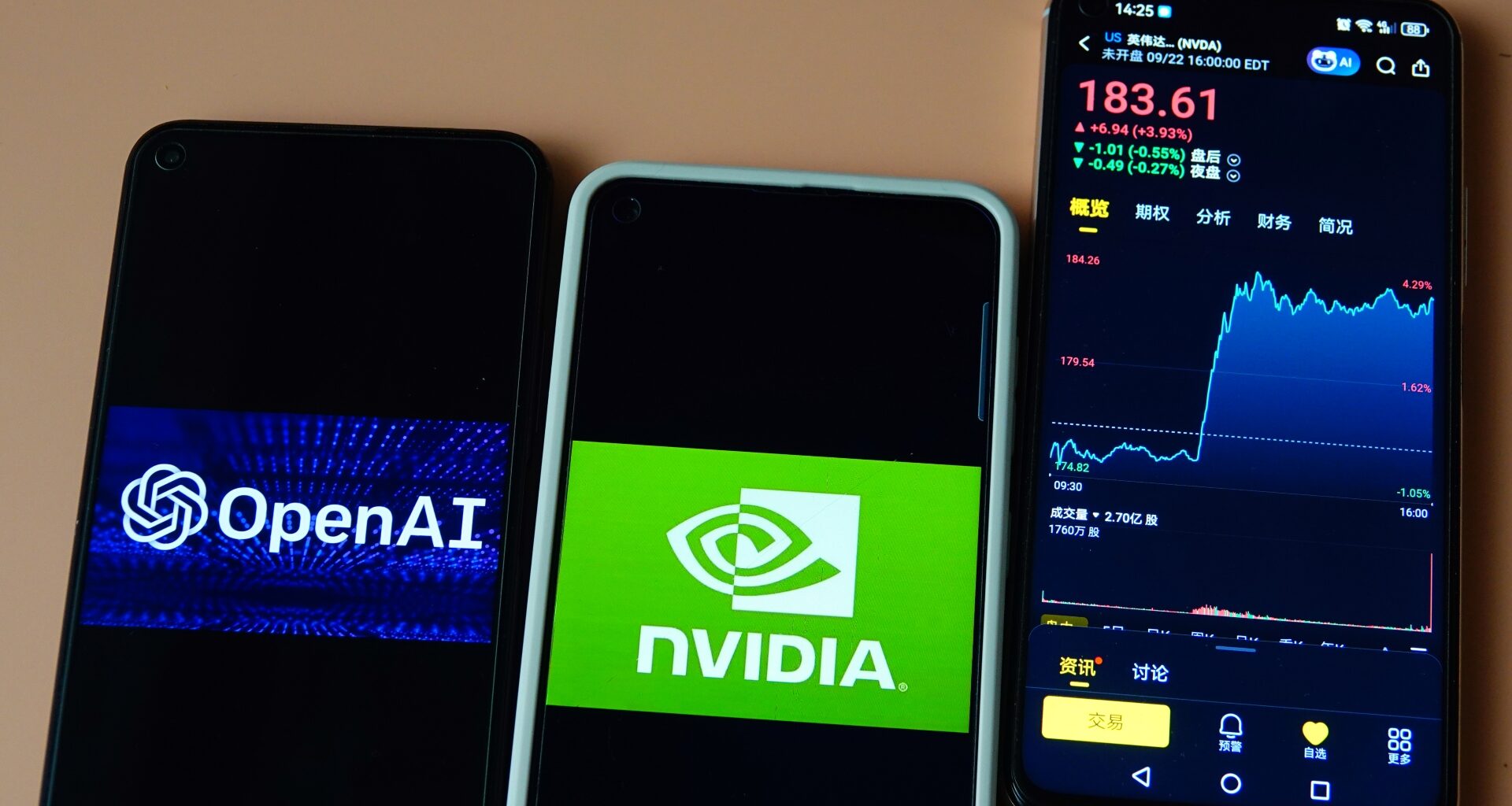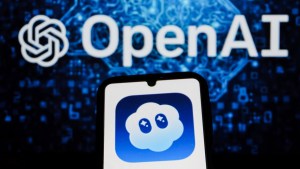The artificial intelligence bubble is bigger than ever.
Share prices have hit crazy highs on the hope that AI will make companies richer than God. Perhaps some firms will be, in time. But not all of them. The lesson of the dot-com bubble is that the horizon of excitement is much, much broader than the circle of success.
Related Article Block Placeholder
Article ID: 303153
A great reckoning is surely coming, where AI valuations get shaken out. A majority (54%) of Wall Street fund managers believe AI shares are already overvalued, according to a Bank of America survey conducted in October 2025. That’s a record level, and a big increase from just two months ago.
The reason for those once sanguine investors to change their view is plain: AI stock valuations have gone up madly — even very recently. Nvidia now boasts a three-year return of 1,500%, for example. The next chart shows a couple of the strong performers.
The rise in Alphabet’s share price is not based on earnings the company is locking away, but on hopes and dreams for future earnings. The ratio of stock price to earnings has risen to 26, which is not as high as Nvidia’s (53) but higher than the old rules of thumb that say a fair value is in the 10-20 range. (Special shout-out here to the price-to-earnings ratio of Tesla: 257.) Suffice to say, the US market is full of optimism, froth and greed right now.
Smarter business news. Straight to your inbox.
For startup founders, small businesses and leaders. Build sharper instincts and better strategy by learning from Australia’s smartest business minds. Sign up for free.
By continuing, you agree to our Terms & Conditions and Privacy Policy.
What is AI? At this point, it is mostly just software that makes pictures or figures out what word should come next. Very novel software that performs very well at that task, even in complex situations, and with the prospect of expanding into many more problem-solving domains. But still, that’s mostly what is concrete for now.
Related Article Block Placeholder
Article ID: 325300
If it all comes crumbling down, the impact on the wealth of Americans with big stock bets will be huge. America’s market is highly concentrated.
“US equity valuations appear stretched relative to fundamentals, on the basis of staff estimates, but current overvaluation is still below historical peaks, for example, during the dot-com bubble. Concentration risk, however, has risen to historically high levels, with a narrow group of IT- and AI-related stocks predominantly driving the S&P 500,” the IMF warned in its Global Financial Stability Report this week.
“The possibility of mega-cap stocks failing to generate expected returns to justify current lofty equity valuations could trigger deterioration in investor sentiment and make the stocks susceptible to sudden sharp correction.”
The scale of such a crash will also affect the real economy — a lot of jobs are in these big tech firms, or in serving them by building big data centres, etc. And when you get a market crash with a real economy impact on the side, that’s when a crash builds on itself, drains the confidence from the system, and the capacity of government to respond is strained.
I should say this: I don’t think it will come crumbling down yet. The pace of improvement of AI is still very rapid, and that is enough to stretch out those hopes and dreams for many months yet, perhaps even several years. Not to mention, a few minor corrections could appear before any true shake-out.
But what of Australia? We basically have no listed AI stocks. The top performers in our stock market remain simple creatures: banks that lend money to buy homes, shops that sell milk and bread, companies that dig up rocks. What do we care of Nvidia and its price-to-earnings ratio?
Related Article Block Placeholder
Article ID: 323665
Well, one answer is that the tendrils of the AI explosion are reaching us. Amazon is investing huge sums in data centres all over our country, and filling them with racks of servers and big cooling systems. The IT industry is spending sums it has never spent before on stuff, as the next chart shows.
But the economic impact of these is mostly in their construction. Once they are up and running, they will not be huge employers. The impact of an AI crash will probably be propagated through the financial and economic effects on the US economy, not unlike the subprime crisis of 2008 or the dot-com bubble of 2001. In both of those instances, our growth halved, and thousands were thrown out of work.
The AI bubble is inflating, and its shadow grows ever larger. The bigger it gets, the bigger the downside.
This article was first published by Crikey.



